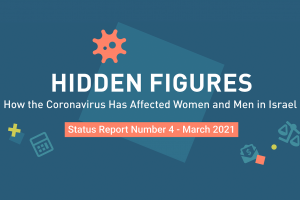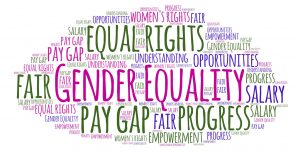One year after the outbreak of the Corona pandemic in Israel, it is abundantly clear that the crisis has been a gendered one, impacting women and men differently
The Corona crisis began as a health crisis, but it revealed the weaknesses of Israel’s social, economic, and political systems as well. It found a political system entirely devoid of gender sensitivity. Thus the decisions made, mainly by men, failed to reflect the needs of women. Moreover, the services essential to coping with the epidemic were under-budgeted and under-staffed. What’s more, the epidemic spotlighted the vital role of both paid and unpaid care work and the centrality of women to the economy.
The Corona crisis provides an opportunity for a paradigm change from neo-liberal capitalism, whose goals are efficiency, competition and economic growth, achieved through reduction of direct state investment in public services and the transfer of many of them to the market, to a feminist economic outlook that places the welfare of women and men centermost, guarantees a social safety net and quality public services for all, and recognizes caregiving and education, including services carried out at home, as vital infrastructure requiring investment and proper remuneration.






